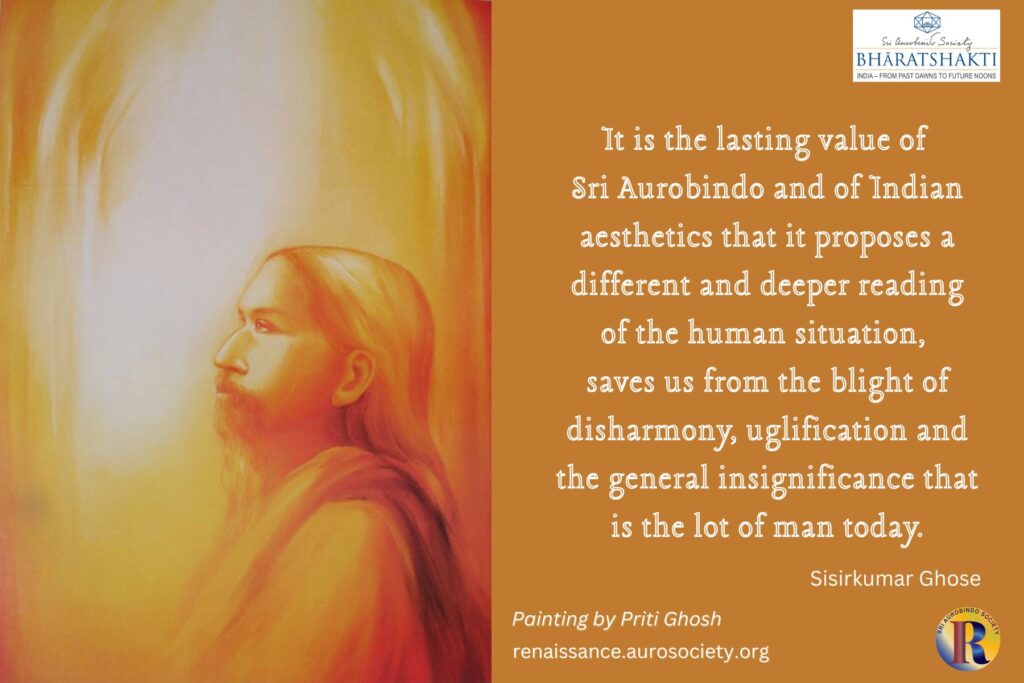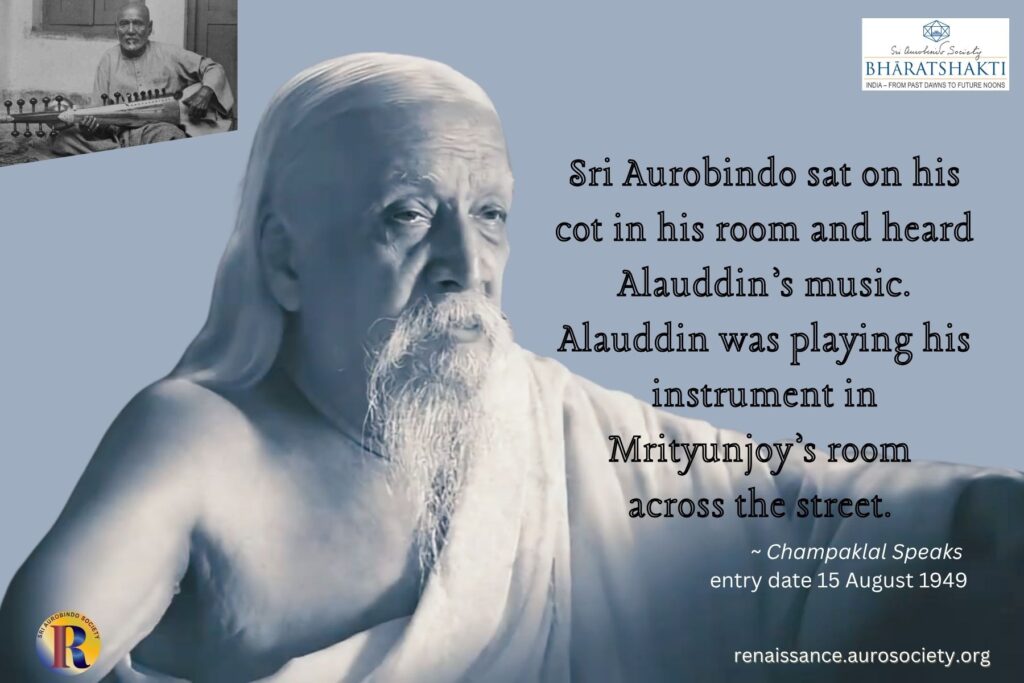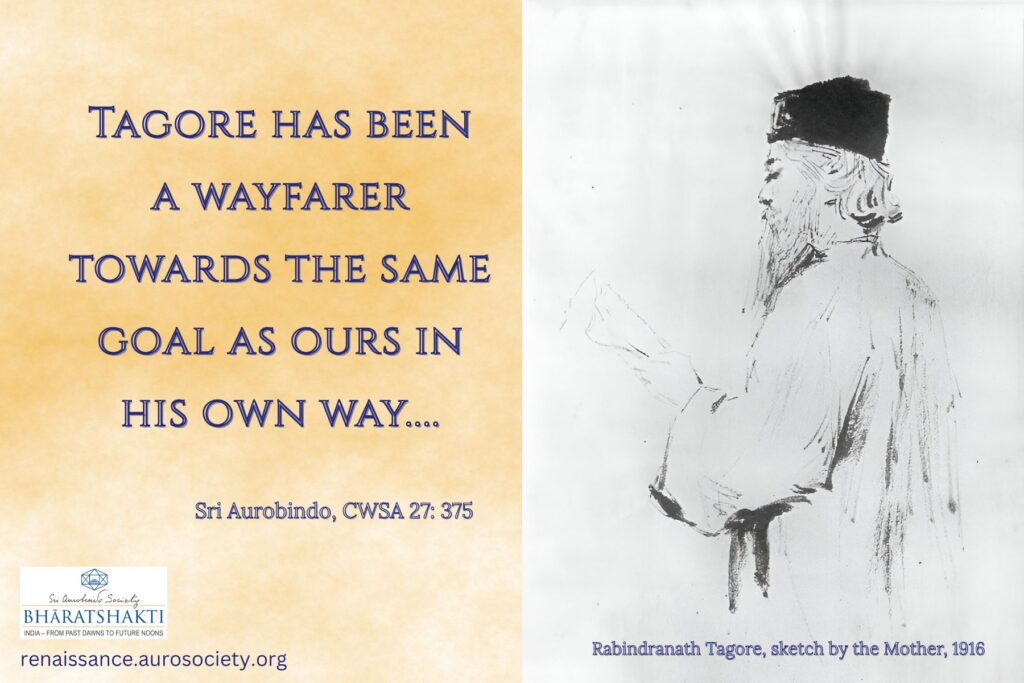Editor’s note: In several of Sri Aurobindo’s writings, especially in his poetry, we find a very high and deeply inspiring portrayal of the essence of womanhood and the Shakti that she is. This article highlighting some of these portrayals was first published in 1966 in the Ashram journal, Mother India, Vol. XVIII, No. 5, pp. 42-47.
The author had prepared this for a talk that he delivered at the Second Annual Conference of the New Age Association on 9th September 1965. This association was started with the blessings of the Mother and held quarterly seminars and annual conferences. We present it here after making a few formatting revisions, with no change in the text.

There is a hierarchy in the concept of the perfect woman in Sri Aurobindo’s poetry. Each type in this hierarchical order is inevitable and perfect in her own sphere. Each reveals something essential, elemental and true in her character, her nature, in her acts and moods and emotions. But it is not possible to deal with all of Sri Aurobindo’s female creations in this short survey. Therefore we shall select only the most representative ones for our analysis.
The woman who typifies the eternal feminine principle is Ahana who is close to earth and is a link between the two poles of being — God and man. She is the representation of perfect beauty, of supreme felicity and is the soul of spiritual knowledge and love. She is the dawn of the soul, the revealer of the secrets of the spirit. She is the first principle of manifestation. She tops the hierarchy. She is divine in nature, immortal in her existence.
Next, we discover Urvasie and Helen.
They are typical higher vital principles of love, beauty and passion. Urvasie is rich with mystery and light. She too Is immortal – not in the spiritual domain, but in the kingdom of higher life where all is a wonder, a discovery, a rapture and a seizing. She is not a goddess like Ahana, but a nymph, a heavenly woman who has entered the heart of beauty, and her body is a revel of ethereal enchantment. She was
. . . a face
~ Sri Aurobindo, Urvasie, CWSA, Vol. 2, p. 67
Of dawn, a body fresh from mystery,
Enveloped with a prophecy of light
More rich than perfect splendours.
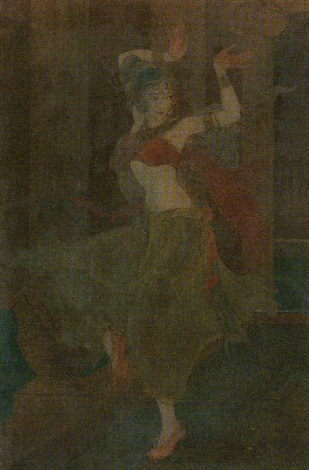
And her body was
A warm rich splendour exquisitely outlined
(ibid., p. 72)
Against the dazzling whiteness, and her face
Was as a fallen moon among the snows.
Here we find a note of grace, a subtle beauty which is not outwardly vivid. This mystic note is typically Aurobindonian.
Sri Aurobindo is never loud, harsh, gaudy with external colour; rather he is soft and mystic with unseizable suggestiveness. He gives Urvasie a heart of love which is almost human in its intensity. But he gives her a faithfulness which is rare amongst supernatural beings. In short, he gives her a double character, that of a heavenly nymph and that of the eternal lover. This concept prevails everywhere in his poetry. His woman is a link between earth and heaven.
We note in passing that Kalidasa’s Urvasie is almost a woman of earth full of passion, jealousy, possessiveness and the home-making instinct. The Urvasie of Tagore is ravishing, swift, elemental, impetuous, a cosmic entity of life’s power of beauty. But the Urvasie of Sri Aurobindo is heavenly in her temperament, divine in her nature, but earthly in her capacity for love, without the degrading influence of human weakness.
Next in the hierarchy is Helen.
Again Sri Aurobindo gives this Homeric character, who caused great disaster to two nations, a special characteristic. She too is half-divine in her beauty; her self of physical perfection is the manifestation of Divine Beauty in a human frame. Sri Aurobindo pictures Paris seeing her:
Calmly he looked on the face of which Greece was enamoured, the body
(Ilion, CWSA, Vol. 2, p. 396)
For whose desire great Troy was a sacrifice, tranquil regarded
Lovely and dire on the lips he loved that smile of a goddess,
Saw the daughter of Zeus in the woman,
This beauty is not subtle like Urvasie’s or tempestuous like Pentheslea’s, but it has a vividness, an ensnaring brilliance which, though physical in its manifestation, is superhuman in its character. We can almost see her, a typical Greek beauty, by the few but poignant lines of Sri Aurobindo.
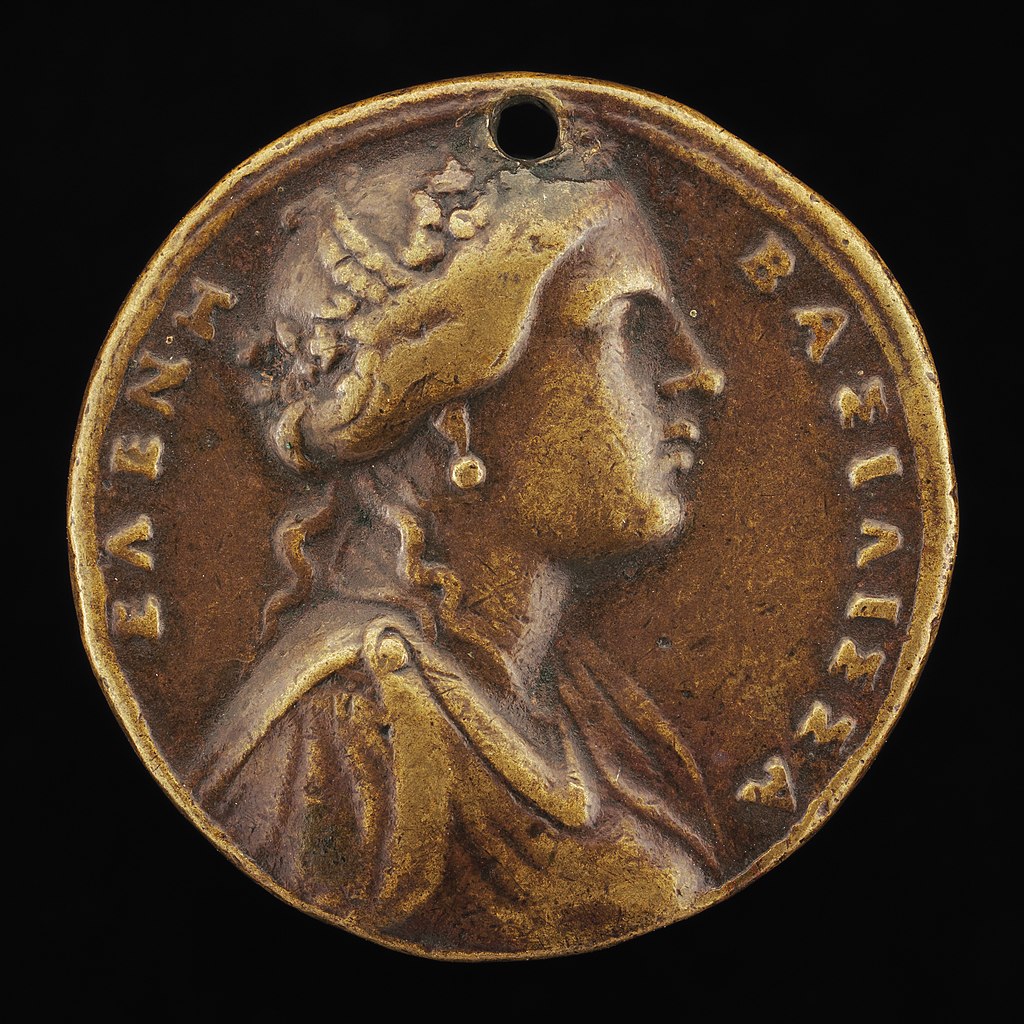
Helen is great due to her love, her sacrifice and her unsophisticated nature. Beauty did not make her proud or self-conscious or arrogant; she was almost a superhuman being, because such rare beauty could not manifest in a common mortal.
Priyumvada is the natural woman; her beauty was like the dawn. It was “An empire for the glory of a God.” (Love and Death, CWSA, Vol. 2, p. 114). We find
Wonderful melancholy in her eyes
(ibid., p. 115)
Grown liquid and with wayward sorrow large.
In her we find a deep love for earth; her nature answers the elemental beauty of life most spontaneously and intensely. Therefore she cries before her death:
I have not numbered half the brilliant birds
(ibid., p. 117)
In one green forest, nor am familiar grown
With sunrise and the progress of the eves,
Nor have with plaintive cries of birds made friends.
She is the girl when earth herself was young and love was unstained. She shares this primal purity; she is one with physical nature and its lyrical beauty; with her we enter a new hierarchy.
So far we have mentioned only superhuman women, but now we shall consider the human types.
Here too we find Sri Aurobindo revealing his genius in his concept of the perfect woman. The perfect woman is not necessarily the ideal woman; she is perfect in her own domain, inevitable in her own sphere of existence.
Vasavadutta is the typical heroine of romance, and she discloses in her love the heart of the eternal woman, in spite of her sophisticated bearing. She is great in her own surroundings and here Sri Aurobindo has explored to the full the possibilities of romantic love. She has all the fire and grace of the common heroine with a difference — a difference caused by the Aurobindonian touch. He avoids vulgarity and commonness and he endows the Sanskrit tradition with a fineness of approach and presentation.
Here is a typical example; Vasavadutta speaks of Vutsa Udayana:
I have heard
(Vasavadutta, CWSA, Vol. 4, p. 669)
Only a far-flung name. What is the man?
A flame? A flower? High like Gopalaca
Or else some golden fair and soft-eyed youth?
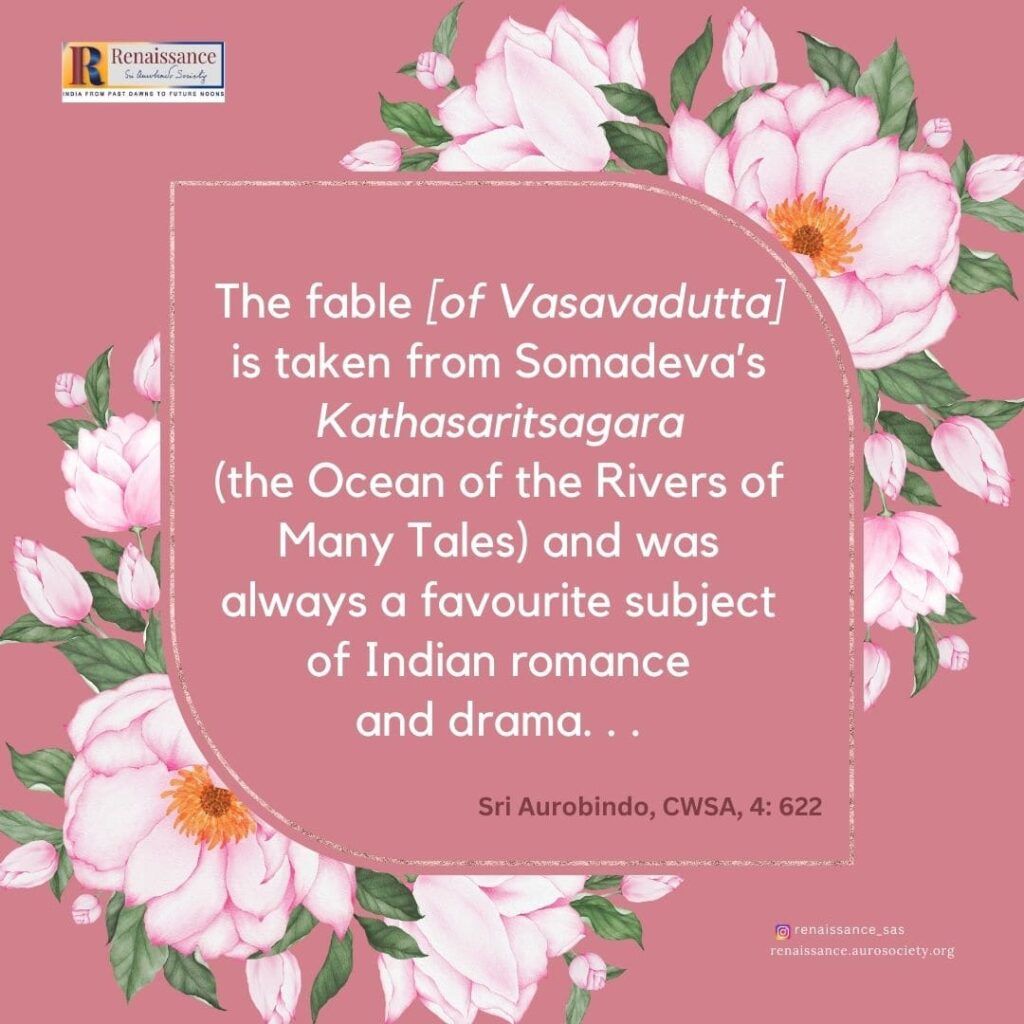
Although love is the bedrock of a woman’s character, we see in Sri Aurobindo this love revealed in many ways, conditions, intensities and heights. The love of Urvasie differs entirely from that of Vasavadutta or Pryumvada; each of these shows one aspect of love in her character, in the trend of her personality, manifest in the given circumstance.
The character of Andromeda is a rich contrast to all heroines we have examined so far.
She is sweet, but her nature has the gift of compassion which we miss in Vasavadutta. Though sprung from a royal lineage, Andromeda is not sophisticated; she appears to be untouched by the surrounding royal pomp and she, by her own will, builds her fate and becomes instrumental to her own union with Perseus.
But with Vasavadutta, environment plays a decisive role in building her character and her outer mask of royal indifference. Vutsa comes to her and by his presence dissolves the mask. But Andromeda goes to Perseus as a result of her own act of compassion.
Andromeda is the instrument of a greater power: Athene. She has a higher calling; she has a larger nature, already half-divine in its capacity for self-sacrifice. She says:
If there is any god in the deaf skies That
(Perseus, the Deliverer, CWSA, Vol. 3, p. 404)
pities men or helps them, O protect me !
But if you are inexorably unmoved
And punish pity, I, Andromeda
Who am a woman on this earth, will help
My brothers.’
By this trend of nature, she grows greater than those around her and becomes worthy of Perseus, himself half-divine.
But we have another ideal in Penthesilea in Ilion. Not tenderness, but courage, force, chivalry and all such elements of martial nature are in her. She glories in battle, in the conflict of men, in the spilling of blood, in the victory that comes after long struggle.
Penthesilea is not like other heroines, meek and gentle. Here Sri Aurobindo has given us another portrait of the ideal woman. And, without her, much of the vividness of feminine nature would have been lost. She equals the greatest of the Trojan heroes and by her dauntless prowess becomes equal to Achilles himself not only in spirit but in physical skill as well.
She is a menace to the Greeks.
She is armed with a puissance, which is hard to encounter; she truly is the Vibhuti of the great world-mother Mahakali, as Andromeda is the instrument of Pallas Athene. The divine afflatus gives Penthesilea all her glory, her passion, her fierce love. Listen:
But in her speed like the sea or the stormwind Penthesilea
(Ilion, CWSA, Vol. 2, p. 469)
Drove towards the ranks of the foe and her spear-shafts hastened before her,
Messengers whistling shrilly to death; she came like a wolfhound
Called by his master’s voice and silently fell on the quarry.
Her great march, her titan strides we hear in these magnificent hexametrical lines; we feel the inexorableness of her untamed nature and revel in the glory of her vibrant womanhood.
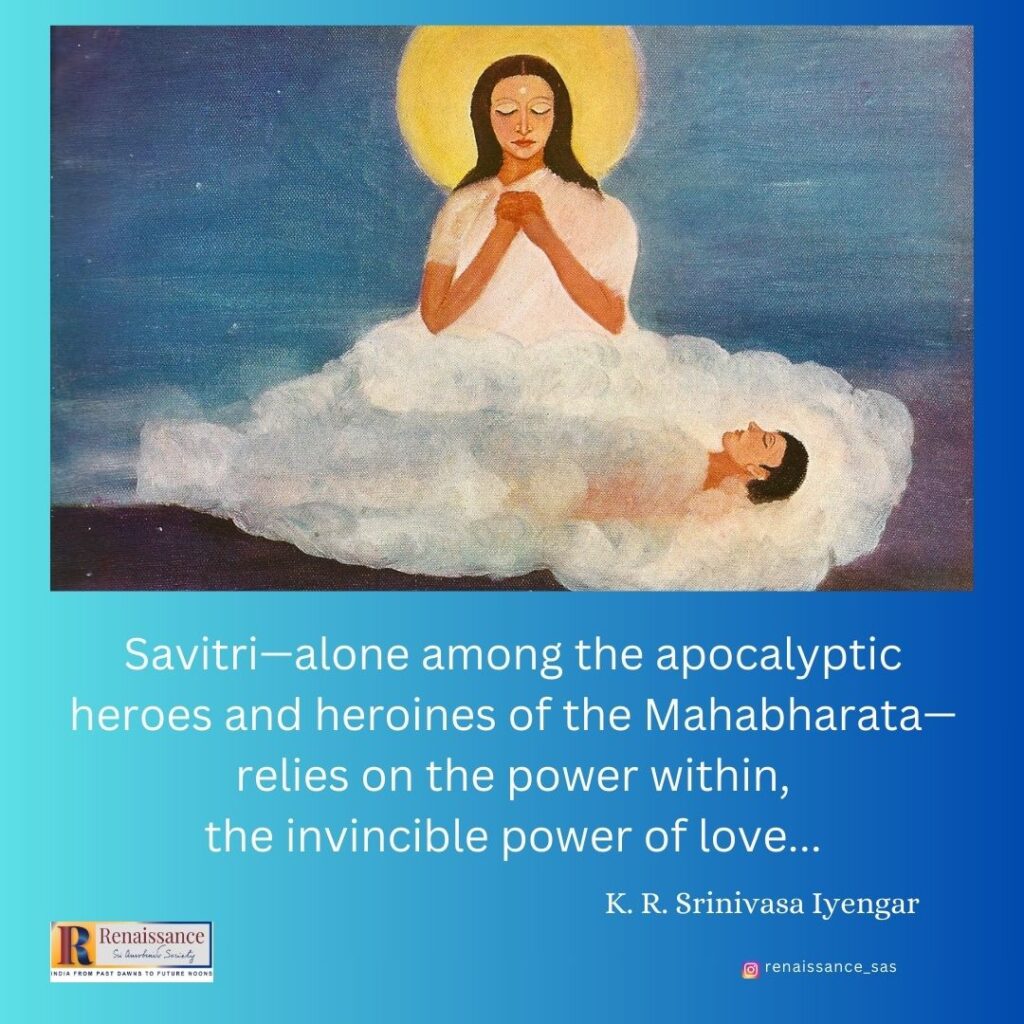
In Savitri we reach the peak of womanhood.
She has all the qualities we have traced so far, and many more. She is the integral, the complete woman, as far as her basic foundation is concerned. We see in her all opposite trends harmonised and blended.
We see in her the will, the courage, the love, the compassion, the passion and the divine anger all manifest as the many aspects of her divine humanity. She is apparently human in overt presentation; but she is the immanent divine Shakti, who has taken on herself the task of uplifting humanity and to greaten the stride of cosmic evolution.
Her sweetness is intense, her love is boundless, but she also possesses limitless knowledge and unimaginable freedom.
It is difficult to class her as one type of woman, for we find in her a will and courage far greater than Penthesilea’s or Andromeda’s; we see in her a love which no Priyumvada, Urvasie or Helen could match; we see in her a sacrifice which we can never find except in fairy tales.
But as presented by Sri Aurobindo she or her life is not a fairy tale but a cruel and heart-rending struggle which brings home to us the full import of her character. We find in her a greatness which no woman could reach. All is in her — not as something extraordinary, but as something natural.
She, it appears to us, is oblivious of her greatness, her superhuman stature; so much is she merged with the earthly substance and so intense is her love for the world. Especially we are struck by the opposites shown us in Books Ten and Eleven and in the Epilogue.
In the first two we discover her great personality, her will, her amazing perseverance against colossal odds. She reveals herself as the World-Mother who annihilates death and obtains from the Supreme the consent of Satyavan’s revival. In the epilogue we find her human again with almost no overt trace of the former divinity. Her advent was to earth a revelation:
A new epiphany appeared in her.
(Savitri, CWSA, Vol. 34, p. 357)
And superhuman were the elements of her base:
A mind of light, a life of rhythmic force,
(Savitri, CWSA, Vol. 34, p. 357)
A body instinct with hidden divinity
Prepared an image of the coming god.
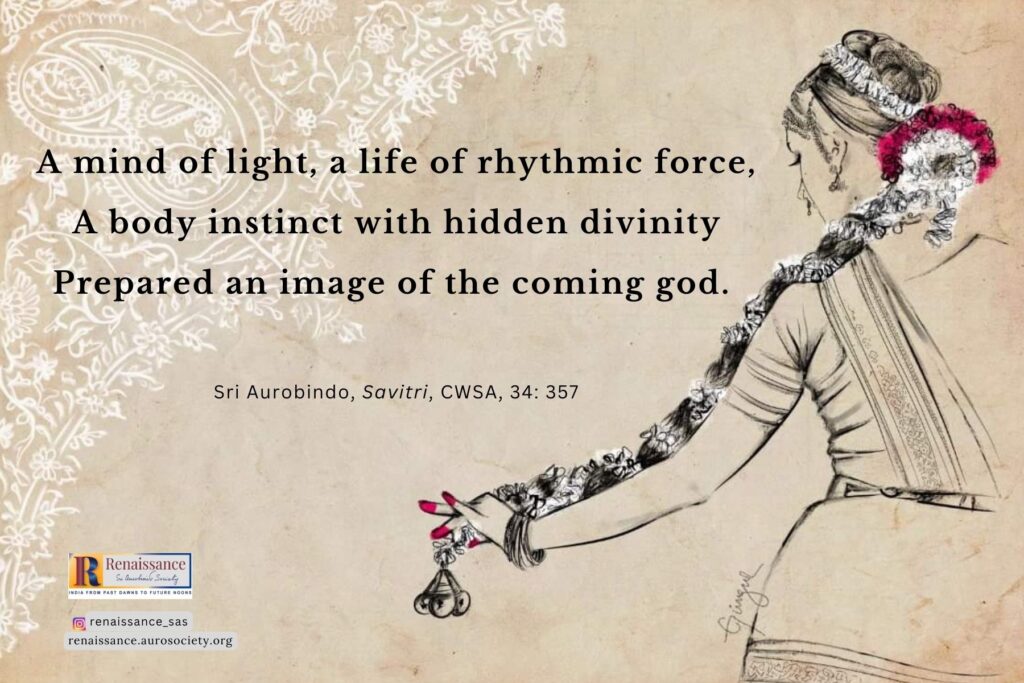
In her daily life:
Her hours were a ritual in a timeless fane;
(ibid., p. 360)
Her acts became gestures of sacrifice.
All these examples disclose her supernal origin. But she never loses her link with earth; she is the wonderful bridge between the unseen and this world.
Sri Aurobindo describes her thus :
A deathless meaning filled her mortal limbs;
(ibid., p. 373)
As in a golden vase’s poignant line
They seemed to carry the rhythmic sob of bliss
Of earth’s mute adoration towards heaven
Released in beauty’s cry of living form
Towards the perfection of eternal things.

Savitri implies the heightening of human qualities into something essentially divine, not by some explicit revelation but by some subtle, hidden suggestion, some trace, some outline that shows the all-beautiful by a sign. But this is one aspect of her nature. She also defies fate thus:
My will is part of the eternal will,
(ibid., p. 435).
My fate is what my spirit’s strength can make,
My fate is what my spirit’s strength can bear,
My strength is not the titan’s, it is God’s.
Mark the strength, the inborn will, the challenging vehemence that comes from the soul and not from the ego.
Here is a naked self-knowledge; here is what constitutes a divine being. We cannot but acknowledge and bow to her greatness. Penthesilea’s strength amazes us, but Savitri’s overwhelms and captivates us with its magnitude, its calmness, its unchanging quality.
But we have yet a greater revelation when Savitri overcomes Death by her transcendent power. She casts her light on Death thus:
Light like a burning tongue licked up his thoughts,
(ibid., p. 667)
Light was a luminous torture in his heart,
Light coursed, a splendid agony, through his nerves;
His darkness muttered perishing in her blaze.
Here is Savitri as the World-Mother herself, there is no veil; she stands before us august and inviolable.
We can only feel her grandeur in the annihilation of Death as a wide cosmic gesture from her supreme summits. A little later the voice of the Eternal comes down to us thus:
O beautiful body of the incarnate Word,
(ibid., p. 698)
Thy thoughts are mine, I have spoken with thy voice.
My will is thine, what thou hast chosen I choose.
All thou hast asked I give to earth and men.
Such in her variety is Woman in the concept of Sri Aurobindo. She has her depths, her mysteries, her heights, her inscrutable charm. She has unforeseen powers, unchartered seas of passion. We cannot estimate her in her totality, so great is her many-sided magnificence.
She is goddess in one aspect and intensely human in the other. Her nature is the meeting-ground of these two. She lays bare the power of love, not as an ineffective romantic element, but as a great creative intensity, capable of changing even the direst opposition, capable of rising to heights no other power can attain.
Savitri is the summing-up par excellence of these qualities.
She is the Divine Shakti in a human form; she is also the princess of love, she is again the yogi and yet again the fighter against Death. Her power of love does not annihilate but saves, her love awakes the deepmost soul, her love achieves what no power on earth can achieve; the certitude of earth-transformation.
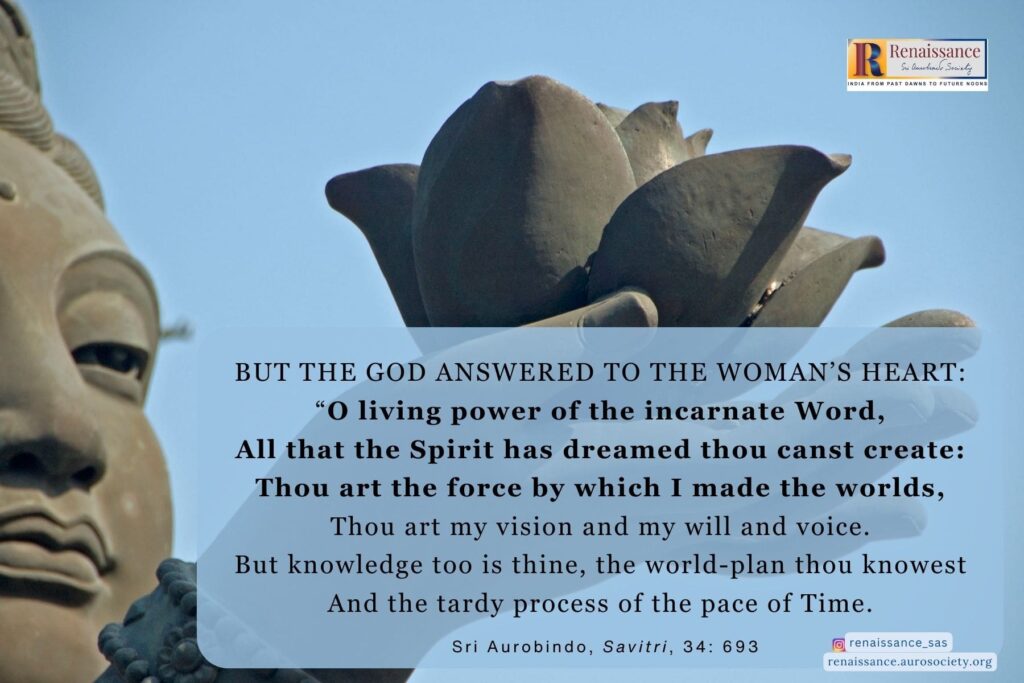
From our archives:
Sri Aurobindo’s Savitri and True Women Empowerment
~ Design: Beloo Mehra

